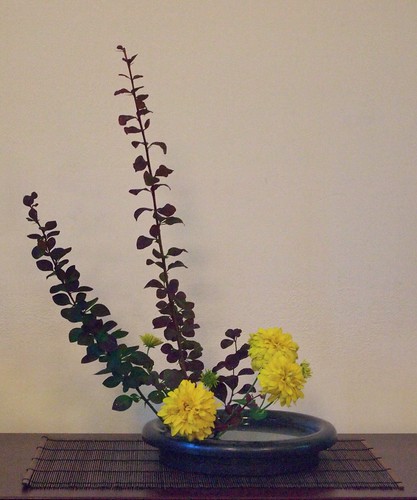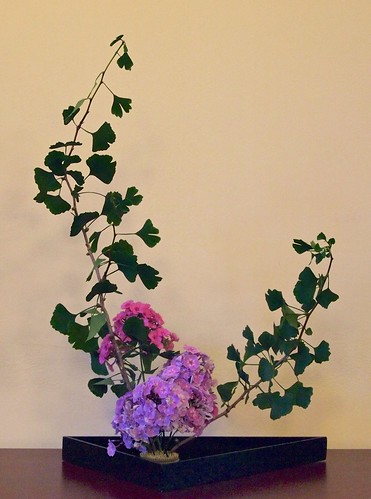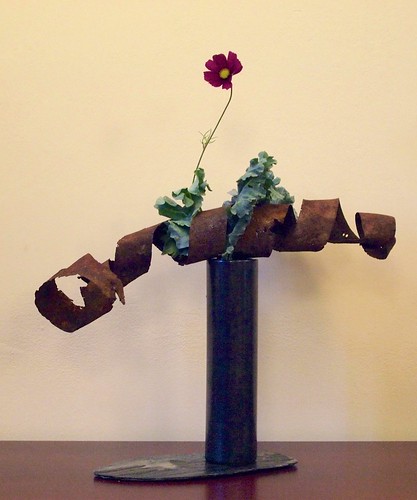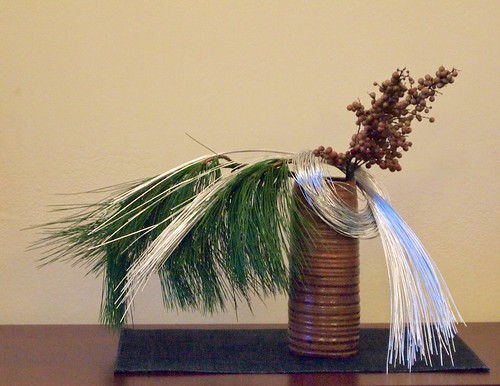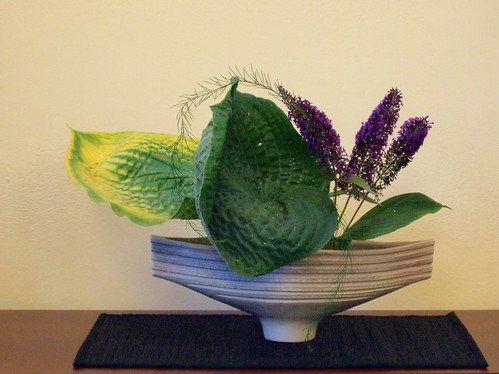Basic upright style.
Japanese barberry and Cutleaf coneflower.
Japanese barberry and Cutleaf coneflower.
These are the pictures from the demonstration I had at the Botanical garden here in Oslo in August. I wanted to start with an introduction to the history of ikebana, so I figured there would be time to make seven arrangements, which turned out to be correct. The demonstration was scheduled to take a little less than an hour.
![]()
Straight lines, vertical arrangement.
Cattail plant and Purple loosestrife.
![]()
Curved lines, mass and lines.
Weeping willow, Hydrangea paniculata and Bergenia leaves.
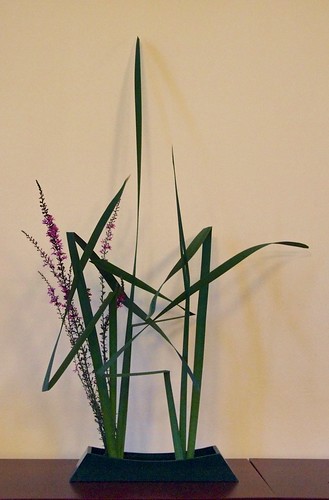
Straight lines, vertical arrangement.
Cattail plant and Purple loosestrife.
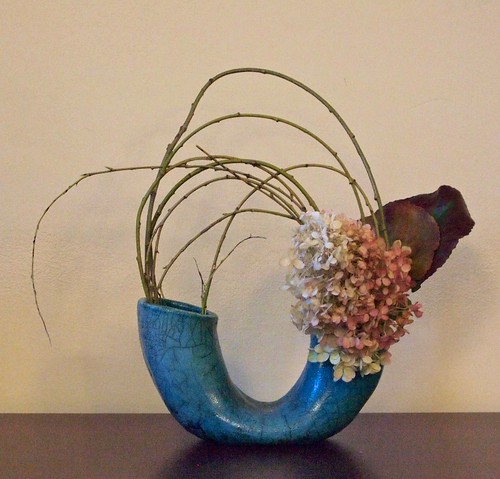
Curved lines, mass and lines.
Weeping willow, Hydrangea paniculata and Bergenia leaves.
When preparing an ikebana demonstration I try to get a nice variation of styles, with different expressions. Even though it should be a peaceful experience to attend the demonstration, you can't use too much time working on the arrangements. Preparation and planning is everything. In the Sogetsu school we always stand behind the arrangement when demonstrating, so that the audience can see the frontside of the ikebana and follow the work all the time. This takes some practice, but it is nice when you get it right.
Variation no 3, fan style.
Ginko and Phlox.
Untraditional materials.
Rusty scrap metal, Seakale and Cosmos flower.
All the botanical materials used in the exhibition and demonstration came from the botanical garden, which gave me an opportunity to use some branches that one rarely finds in Norwegian gardens. As in all botanical gardens it is strictly forbidden to cut anything inside the garden.
Mass of lines.
Longleaf pine, Mizuhiki cord, Solomon's Plume berries.
